Review: Electric Rosary is fast paced, thought provoking and original
- Written by Glenn Meads
- Last updated 3 years ago
- Theatre
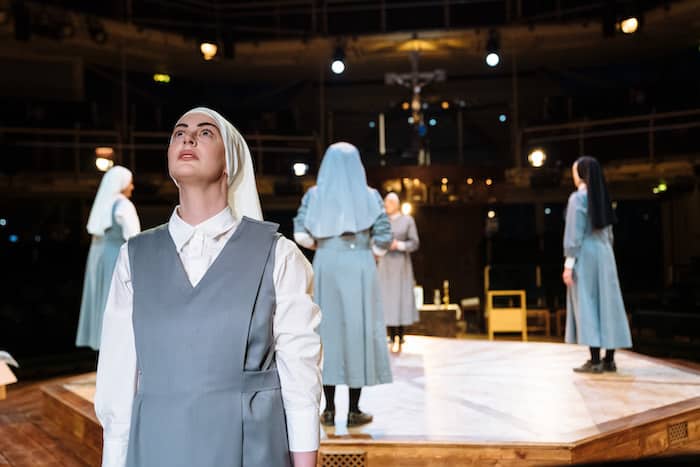
From Bloody Elle through to the recent Nora: A Doll’s House, The Royal Exchange Theatre has come back from the pandemic with a series of high quality productions which have divided audiences and critics.
I have been particularly impressed at the way that this is a venue that takes risks and that they represent a world which is contemporary and organic, as opposed to programming the same stuff we see elsewhere.
Tim Foley’s intriguing and never dull Science Fiction fantasy Electric Rosary continues in the vein of being something a bit different, and it is harder to pin down than anything I have seen before in this beautiful space.
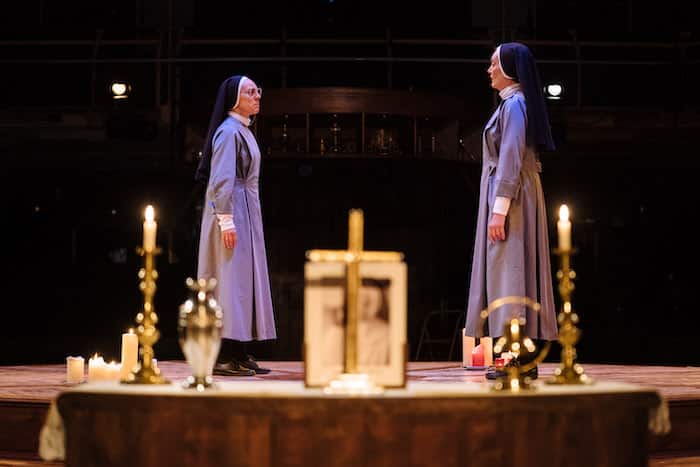
The setting is St Grace’s Convent and the first half of the play focuses on the lives and personalities of the nuns. Mother Elizabeth (Jo Mousley) knows that things have to change in this tired place and is seeking something new.
But she has a fight on her hands with a more traditional nun, Constance (Olwen May) who is not necessarily old fashioned but she does believe in tradition.
Thereasa (Saroja-Lily Ratnavel) is similar to Anita from Victoria Wood’s Dinnerladies; she has a childlike innocence and has many of the play’s best lines.
Philippa (Suzette Llewellyn) loves the state of order and carrying out tasks, it gives her a purpose but also a sense of responsibility.
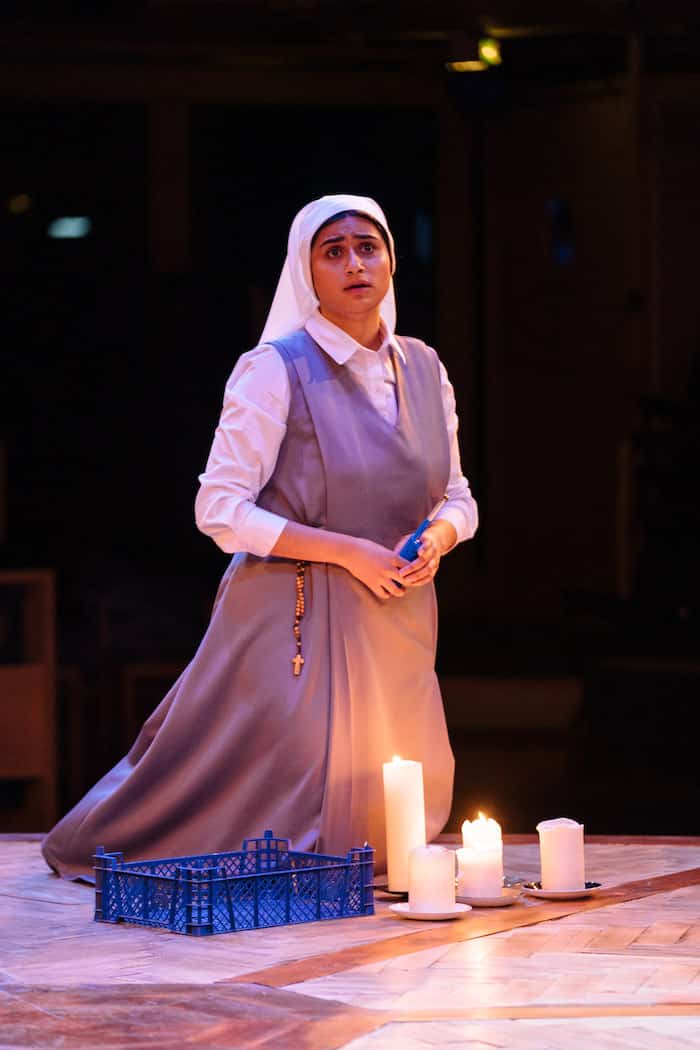
As we meet and get to know these interesting women, you are struck by the high quality of Tim Foley’s writing because these are not only fully rounded characters, but you feel as if you know them and it creates a bubble; one that you do not want to burst.
Mother Elizabeth’s change comes in the form of council-funded robot – Mary (Breffni Holahan) who is programmed to carry out tasks, and hold information from the cloud and just about anything else you require.
And just like our mobile phone, laptop or smart TV, she is always there monitoring what is going on and who is saying what to who.
Once Mary arrives, the sisters either view her as a curse as a blessing but the one thing none of them can deny is that this straight talking robot brings about change in a way none of them expected.
You are reminded of Pygmalion as Thereasa shares the joys of a cup of tea with Mary and as the days roll on by, she becomes more human.

In the background we hear protests via Anna Clock’s clear and crisp sound design and the play shifts a gear, with a real sense of foreboding.
Foley has a great deal to say and explore in this interesting play and I really admire the way he places opposites together.
A robot in a convent sounds high concept, until you see her mopping at speed, pouring tea all over herself, going through the books to assess the financial state of the place – all through her head and interacting with the nuns and bringing about rapid change.
The dystopian setting versus the tradition of the church provides you with a key talking point and leaves you pondering a great deal, including faith and how we as humans will interact with others, and how we react to people different from ourselves right now.
Charlotte Espiner’s excellent set design reflects a world without Alexa; filled with Tupperware and ornaments.
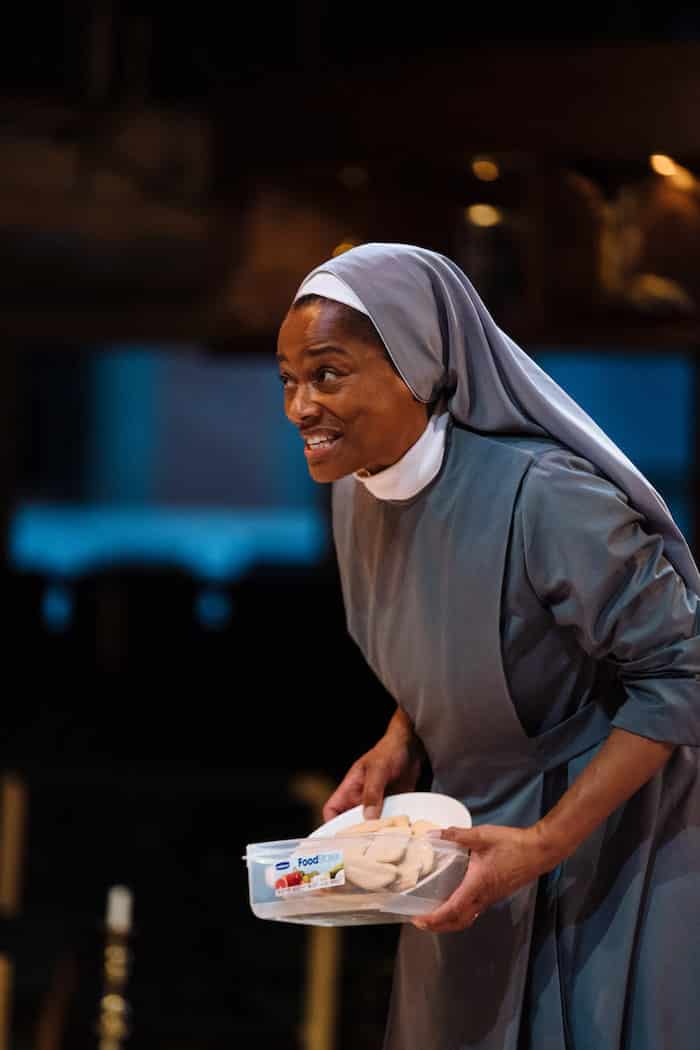
The first half is witty, fast paced, thought provoking and both incredibly original, yet strangely familiar because Mary is essentially a fish out of water. But as the play progresses, she becomes the big fish in this staid and dusty convent.
You are reminded of the beautiful and bouncy writing of Victoria Wood, mixed with The League of Gentleman.
The characters are well drawn and fleshed out beautifully by these fantastic actors, each one bringing something unique to the stage.
But the second half takes you in a direction towards bonkersville and you start to realise this is a play that does not know where to end, delivering a great deal of exposition, conversations with the almighty (played with mystical charm by Yandass Ndlovu) and so many plot developments, secrets and lies and twists and turns that some audience members may end up feeling confused and as overloaded as Mary.
I almost rebooted myself.

The main problem here is the shift in tone and the fact that Electric Rosary starts to resemble films that you have seen before.
The Terminator, AI. Artificial Intelligence and Ex Machina have all delved into this territory before with depth and breadth. But here it almost feels like a mish mash of the ideas that these and other well known films and books have explored before. And it is way too long.
All is not lost though, as Breffni Holahan is such a fascinating performer to watch because she has the ability to entrance and deliver lines in such a deadpan way with a forced robotic smile, that she comes across like Meryl Streep’s loyal assistant in The Devil Wears Prada.
She really draws you into the play and the themes.
The whole cast are committed and bring comedy, poignancy and a real sense of community in a fractured and ever changing world. You cannot take your eyes off them.
Jaz Woodcock-Stewart has a real eye for detail and delivers the epic scale of this fascinating piece but as a play it does not know where to end and it starts to resemble an essay unsure of a conclusion, so it gives you three at once and many sentences starting with “And another thing…”
Electric Rosary will divide, but I wanted to it to conquer.
Electric Rosary is at the Royal Exchange Theatre until 14th May and tickets can be booked here.
- This article was last updated 3 years ago.
- It was first published on 29 April 2022 and is subject to be updated from time to time. Please refresh or return to see the latest version.
Did we miss something? Let us know: [email protected]
Want to be the first to receive all the latest news stories, what’s on and events from the heart of Manchester? Sign up here.
Manchester is a successful city, but many people suffer. I Love Manchester helps raise awareness and funds to help improve the lives and prospects of people across Greater Manchester – and we can’t do it without your help. So please support us with what you can so we can continue to spread the love. Thank you in advance!
An email you’ll love. Subscribe to our newsletter to get the latest news stories delivered direct to your inbox.
Got a story worth sharing?
What’s the story? We are all ears when it comes to positive news and inspiring stories. You can send story ideas to [email protected]
While we can’t guarantee to publish everything, we will always consider any enquiry or idea that promotes:
- Independent new openings
- Human interest
- Not-for-profit organisations
- Community Interest Companies (CiCs) and projects
- Charities and charitable initiatives
- Affordability and offers saving people over 20%
For anything else, don’t hesitate to get in touch with us about advertorials (from £350+VAT) and advertising opportunities: [email protected]

Bollywood magic is coming to Manchester with Come Fall in Love at the Opera House
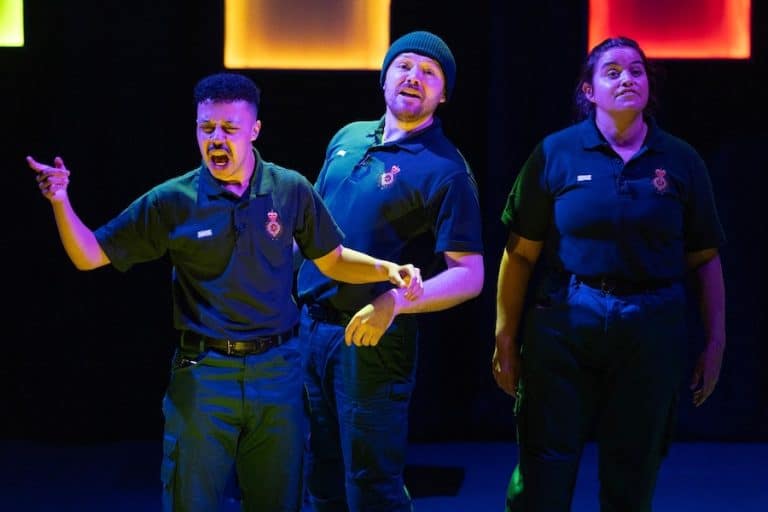
Review: One Punch at HOME is ‘a raw and unflinching look at violence and regret’

Review: Blithe Spirit at Hope Mill Theatre is ‘full of charm, chaos, and chuckles’


Greater Manchester’s most notable statues and sculptures – what they stand for and where to find them















